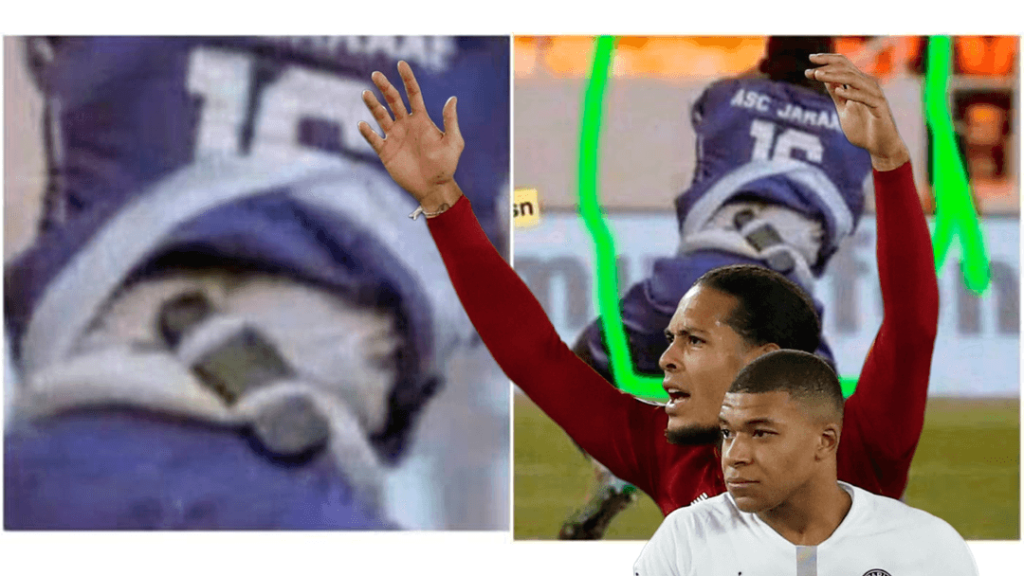Listen to the article
In the age of viral social media and 24-hour sports coverage, misinformation has emerged as a persistent problem plaguing modern football, creating a parallel narrative that often overshadows the beautiful game itself.
Industry experts have noticed a troubling trend where fabricated transfer rumors, invented player controversies, and unfounded speculation spread rapidly across digital platforms, drawing attention away from the actual sporting competition that fans ultimately crave.
“What we’re seeing is an ecosystem where misinformation thrives because it generates clicks and engagement,” explains sports media analyst Maria Hernandez. “A sensational but completely false transfer rumor will often receive more attention than thoughtful analysis of actual match tactics.”
The issue has become particularly acute during transfer windows, when clubs across Europe’s top leagues engage in player negotiations. What once was a relatively straightforward business process has transformed into a circus of speculation, with fabricated stories regularly causing market fluctuations and unnecessary anxiety among supporters.
Premier League clubs have been especially affected, with several team executives expressing frustration over how false rumors impact their operations. One sporting director, speaking on condition of anonymity, revealed that his club had to dedicate staff specifically to monitoring and countering misinformation circulating about their transfer activities.
“Sometimes we see completely fabricated stories about players we’ve never even discussed,” the director said. “But once these stories gain traction, they create real problems – from unsettled players to concerned sponsors.”
The financial impact extends beyond club operations. The sports betting market, valued at over $200 billion globally, frequently experiences volatility based on transfer rumors and team news that later proves false. This has prompted calls for greater regulation and accountability in sports journalism.
Football supporters’ groups have also voiced concerns about how misinformation affects their experience. A recent survey conducted across major European leagues found that 68% of fans feel the constant stream of dubious rumors detracts from their enjoyment of the sport.
“We just want to focus on what happens on the pitch – the goals, the tactics, the raw emotion of competition,” said Carlos Reyes, who leads a prominent supporters’ organization. “Instead, we’re constantly distracted by speculation that rarely materializes.”
Some traditional media outlets have responded by doubling down on verification processes and transparency in their reporting. Publications like The Athletic and BBC Sport have implemented stricter sourcing policies for transfer news, clearly distinguishing between confirmed information and speculation.
Digital platforms are facing increased pressure to address the problem as well. Twitter (now X) and Instagram have experimented with fact-checking labels on sports content, though critics argue these measures have had limited effectiveness given the volume and velocity of information shared.
Historical perspective suggests this isn’t entirely new. Football has always generated rumors and speculation, but the digital transformation of media has amplified both the reach and impact of misinformation.
“What’s different today is the scale and speed,” notes sports historian Jonathan Mills. “In the past, a rumor might spread through local pubs over days or weeks. Now, a completely fabricated story can reach millions worldwide in minutes.”
As the new season approaches across Europe’s major leagues, there are small signs of a pushback against the misinformation culture. Several prominent players have begun calling out false stories directly through their social media channels, while fan groups are increasingly favoring outlets with proven track records for accuracy.
The message becoming clear across the football world echoes a return to fundamentals: let the game speak for itself. After all, no fabricated transfer rumor can match the authentic drama of a last-minute goal, the artistry of a perfect pass, or the shared emotional experience that has made football the world’s most beloved sport for generations.
Fact Checker
Verify the accuracy of this article using The Disinformation Commission analysis and real-time sources.




6 Comments
Interesting how misinformation can dominate the sports news cycle these days. Sensational transfer rumors often get more attention than the actual on-field action. Fans deserve more substantive analysis of tactics and team dynamics.
The rise of social media has amplified the spread of misinformation in soccer. Fabricated stories about player moves and controversies can move markets and distract from the real game. Clubs and media need to find ways to combat this.
This article highlights an important issue facing modern soccer – the prevalence of misinformation that can shape public perception. Clubs and media outlets need to be more vigilant in verifying information and providing balanced coverage focused on the actual game.
Misinformation in soccer media is a real problem that deserves more attention. Fabricated rumors and unfounded speculation can create unnecessary anxiety and market volatility. Improving verification and transparency should be a priority for the industry.
The strategic use of misinformation to drive engagement is a disturbing trend in soccer reporting. Sensational but false stories can distort the reality of player transfers and team dynamics. Fans deserve better access to credible, fact-based analysis.
It’s concerning how misinformation has become so pervasive in the soccer world. Unsubstantiated rumors and speculation often overshadow the true essence of the sport. Fans should demand more factual, in-depth reporting from reliable sources.